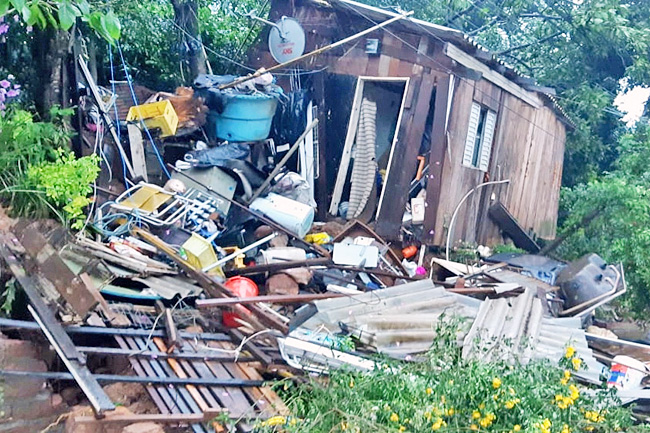NOVO HAMBURGO, BRAZIL (AFP) – A cyclone which tore through southern Brazil has killed at least 13 people and forced thousands from their homes, authorities said on Sunday.
Torrential rain and strong winds on Thursday and Friday caused damage in dozens of towns in the state of Rio Grande do Sul, including its capital Porto Alegre – the latest in a string of weather-related disasters to hit South America’s biggest country.
Two more bodies were discovered in the coastal town of Caraa, one of the hardest hit, bringing the death toll from the storm to 13, the state civil defence agency said.
Three remained missing in Caraa on Sunday, after the number was revised down from Saturday’s total of 20.
The town of Tramandai was also hit hard, with recorded windspeeds up to 101.9 kilometres per hour, according to official figures.

A four-month-old baby is among the fatalities, according to local media, which broadcast footage of a car being swept into a cemetery by powerful winds. “The water came up to our waist inside the house. The firemen arrived quickly and got us out on boats. It seemed like a nightmare,” a woman in the town of Sao Leopoldo told the newspaper Estadao. Other people were evacuated by helicopter.
Nearly 5,000 people were left with damaged houses and on Sunday around 84,000 people were without power. Authorities had preemptively evacuated some 80 people from high-risk areas.
Rio Grande do Sul Governor Eduardo Leite visited the worst-affected areas by helicopter on Saturday together with government and rescue officials. In Caraa, the governor visited a community centre used to shelter hundreds of people whose homes were damaged by the storm.
“The situation in Caraa worries us deeply. It is essential that we can, in an integrated manner, quickly map the main affected areas and identify the people who need support,” the governor said in a statement.
Leite said state firefighters had rescued about 2,400 people in the past two days. “Our main objective at this moment is to protect and save human lives. Rescue people who are isolated, locate the missing and support families,” Leite said.





